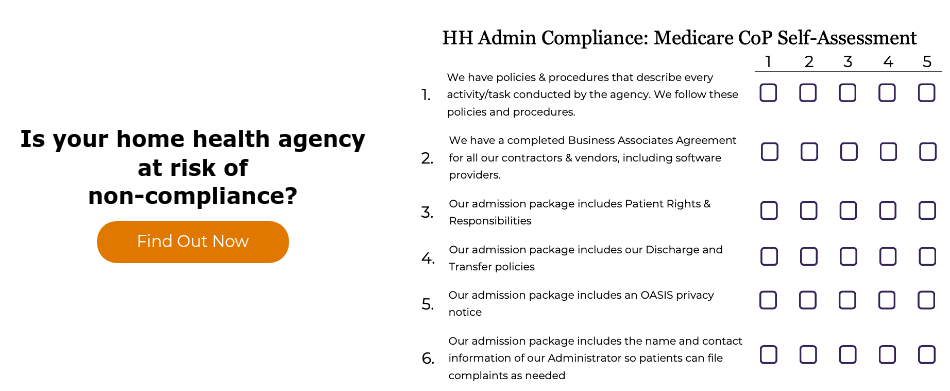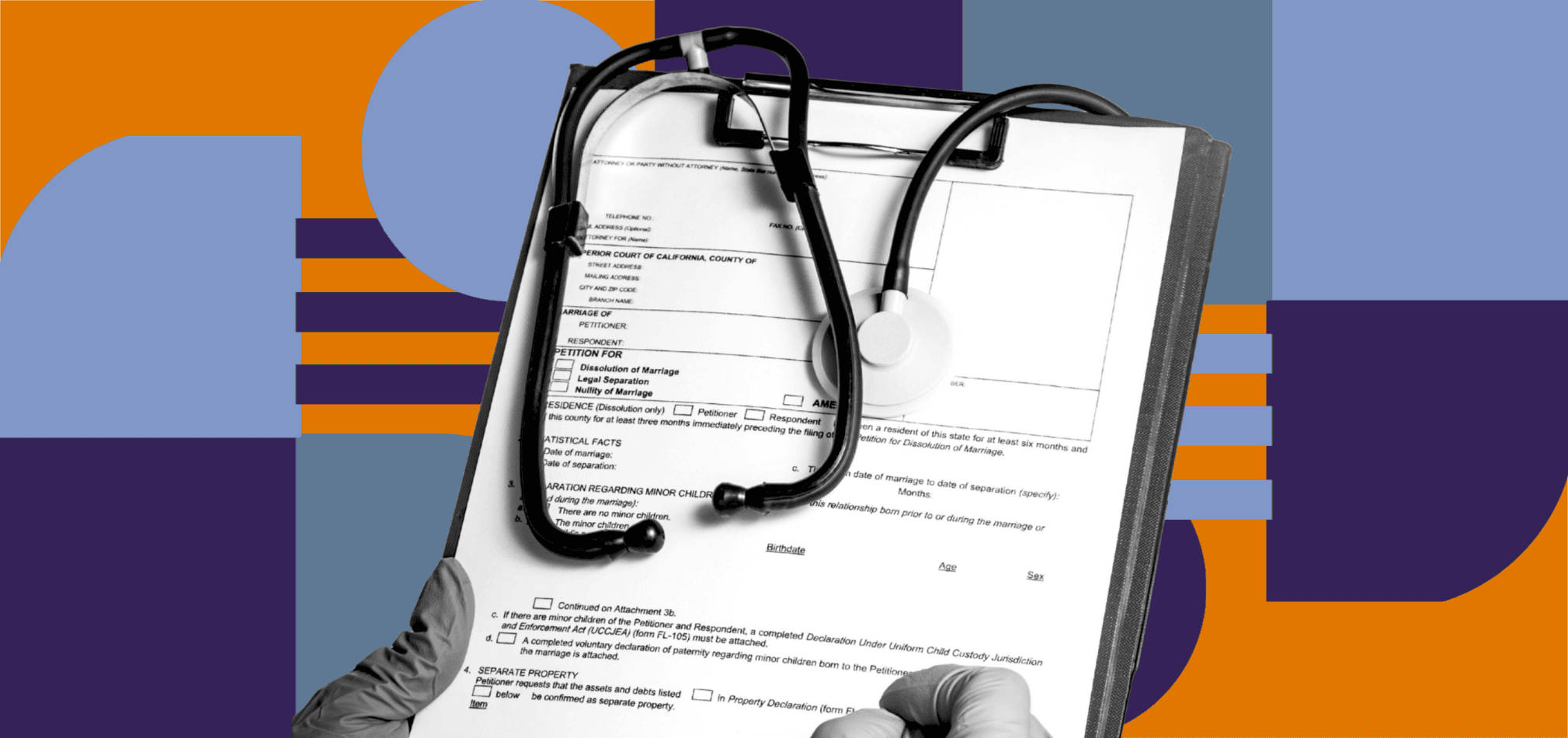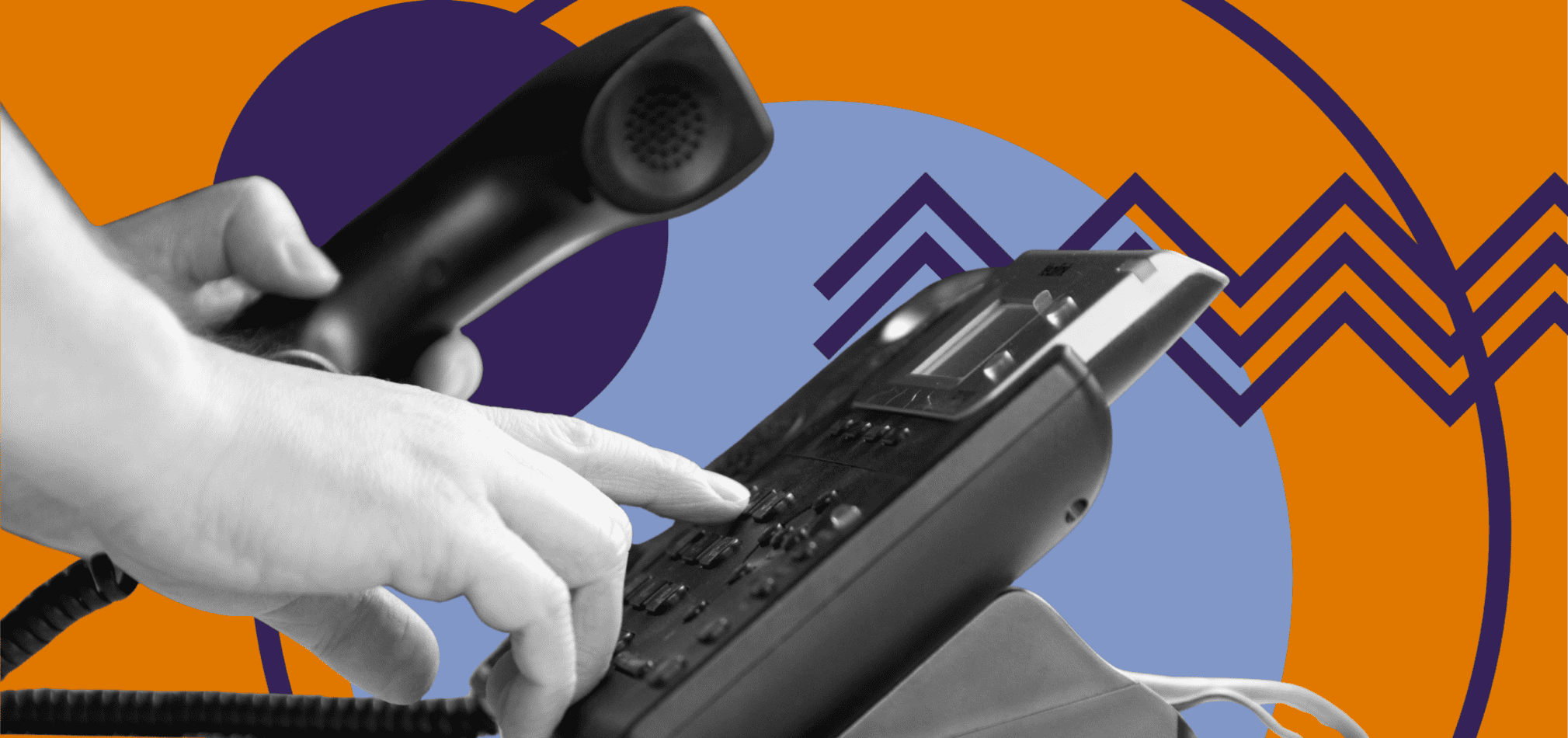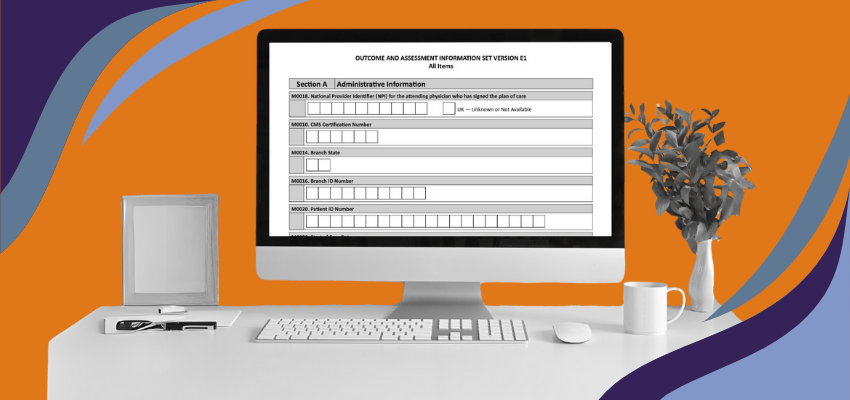What to Expect During Your Home Health (HHA) Survey: Medicare Regulations
March 14th, 2025
5 min read
By Abigail Karl

Running a home health agency isn’t easy. You juggle patient care, staff management, compliance, and business operations every day. Then, the surveyor arrives. The thought of an inspection can be nerve-wracking, but knowing exactly what surveyors look for can make the process far less stressful.
At The Home Health Consultant, we specialize in helping agencies navigate compliance and thrive in a heavily regulated industry. With years of experience working with home health and hospice providers, we know exactly what surveyors expect—and where agencies often stumble.
In this article, you’ll learn:
- The Medicare Conditions of Participation (CoPs) surveyors are checking
- How surveyors prepare for your survey
- What surveyors actually do during survey
- What surveyors do at the end of survey
- How to confidently tackle your next survey
By the time you reach the end of this article, you’ll feel more knowledgeable about the survey process from top to bottom.
What Types of Surveys Should You Expect in a Home Health Agency?

Surveyors aren’t out to shut you down. Their job is to ensure your agency meets Medicare’s Conditions of Participation (CoPs). They want to validate you’re providing safe, high-quality care.
Surveyors do this by observing your operations, reviewing records, and speaking with staff and patients. But what a surveyor is looking for can differ depending on the type of survey.
Surveyors conduct different types of inspections, depending on the purpose:
- Initial Certification Survey: When your agency applies for Medicare certification.
- Recertification Survey: Every 36 months (three years) to confirm ongoing compliance.
- Abbreviated Standard Survey: Triggered by complaints, significant events, or changes in ownership.
- Validation Survey: Ensures agencies accredited by national organizations still meet Medicare requirements.
- Partial Extended & Extended Surveys: Occur if serious compliance issues are found during a standard survey.
If major concerns arise, a standard survey can escalate to a more in-depth review. It’s also important to keep in mind surveys can be announced, unannounced, or a complete surprise. This makes it all the more important to stay compliant, regardless of when your survey is.
You can learn more about the most common kinds of surveys home health agencies undergo by reading the article below.
What Are the Conditions of Participation (CoPs) Surveyors Evaluate?
There are a lot of Medicare CoPs, and for good reason. CoPs are designed to hold providers accountable when it comes to keeping patients safe. CoPs evolve and change as CMS identifies new or emerging patterns that could threaten patient care. Because CoPs are constantly evolving, so is the way surveyors evaluate your agency.
Some organizations may have additional requirements, but this list includes the CoPs that must be evaluated each time:
Are You Upholding HHA Patient Rights?
Home health agencies must inform patients of their rights, document these communications, and have a structured complaint resolution process in place.
Are Your HHA Patient Assessments Comprehensive?
Each patient requires an individualized assessment upon admission, with ongoing care plan updates based on changes in condition.
Is Your HHA Care Plan Well-Coordinated?
A clear, written plan of care must be followed and updated as needed. Surveyors look for strong communication between care providers.
Do You Have a Solid HHA Infection Control Program?
Surveyors examine whether your agency has infection control policies, staff training on hand hygiene and PPE use, and strategies for preventing infections.
To read more about how to implement infection control protocol, check out our article on it below.
Are You Continuously Improving Quality?
Your Quality Assessment & Performance Improvement (QAPI) program should track patient outcomes, identify areas for improvement, and implement corrective actions.
Are Skilled Professionals Properly Trained?
Registered nurses, therapists, and other skilled professionals must meet competency standards. They must also receive regular supervision, in-services and training.
Are Your Home Health Aides Competent?
Surveyors check for proper training, evaluations, and supervision of certified home health aides (CHHAs) to ensure compliance with federal regulations.
Are You Prepared for Emergencies?
Your agency must have a written emergency preparedness plan, and staff must be trained in emergency procedures. To stay educated and prepared for your survey, read our deep dive into emergency preparedness programs below.
What Do Surveyors Look For in Home Health Clinical Records?
Surveyors conduct clinical record reviews to verify that documentation accurately reflects the care provided. To ensure compliance with Medicare Conditions of Participation (CoPs) and the patient's plan of care, surveyors check:
- Accuracy of Documentation: Clinical records must include comprehensive patient assessments, physician orders, care plans, medication lists, and treatment responses.
- Timeliness and Completeness: Records must be maintained up to date, with entries authenticated by a qualified professional.
- Security and Confidentiality: Clinical records must be safeguarded against loss or unauthorized access, whether in physical or electronic format.
How Do Surveyors Conduct Their Inspections?

Surveyors have their own procedures they need to follow. The follows list breaks down surveyor’s process to surveying your agency:
- The preparation process
- The first 30 minutes of survey
- The duration of the survey
- The results of the survey
What Does a Surveyor Do Before a Home Health Survey?
Surveyors review your agency’s history, including past complaints and survey findings, to identify potential concerns before arriving.
What Does a Surveyor Do During a Home Health Survey?
Upon arrival, surveyors hold an Entrance Conference with agency leadership. They’ll then request important documents. This can include organizational charts, patient lists, and infection control policies.
To learn how to prepare for your first 30 minutes of survey and for a free downloadable checklist, check out our article below.
After reviewing initial documents, surveyors then select a sample of patients for review. They typically choose a diverse mix of active and discharged cases. Surveyors gather information through:
- Medical record reviews: Ensuring documentation supports services provided
- Home visits: Observing care provided to patients in their homes
- Staff interviews: Assessing training and policy adherence
What Does a Surveyor Do After a HHA Survey?
When the surveying part of the survey is all said and done, surveyors analyze their findings to determine if your agency is compliant. They present their preliminary conclusions during an Exit Conference. In this conference, they’ll bring up any areas of concern.
What Happens If a Surveyor Finds Deficiencies During Your Home Health Survey?
It’s always great to strive for perfection, but deficiencies are common. If they’re found, surveyors issue an official Statement of Deficiencies Report. Agencies must submit a Plan of Correction, detailing how they will resolve these issues.
Deficiencies are classified into three levels:
- Standard-Level Deficiencies: Minor issues requiring correction but not posing immediate risk.
- Condition-Level Deficiencies: Serious compliance failures needing significant corrective action.
- Immediate Jeopardy (IJ): The most severe category, indicating an immediate threat to patient health and safety. If unresolved, the agency risks losing Medicare certification.
If you want to learn more about what happens if you fail a survey, check out the article below for an in-depth review.
How Can You Confidently Tackle Your Next Home Health Survey?
With the right preparation and mindset, you can approach surveys with confidence. To stay ready for survey, here are a few practices to incorporate into your agency’s operations:
- Conduct mock surveys regularly.
- Keep policies updated and ensure staff understand them.
- Address issues immediately—don’t wait for surveyors to find them.
- Maintain thorough and accurate documentation.
Remember, compliance is not meant to be rushed before a survey. For a smooth survey experience, compliance should be integrated into daily operations.
Need help getting your agency survey-ready? The Home Health Consultant is here to guide you every step of the way. To read about our approach to getting and staying survey-ready, check out the article below.
Or, for a more personalized review take a self-assessment to see how your home health agency's compliance measures up.
*This article was written in consultation with Mariam Treystman.
*Disclaimer: The content provided in this article is not intended to be, nor should it be construed as, legal, financial, or professional advice. No consultant-client relationship is established by engaging with this content. You should seek the advice of a qualified attorney, financial advisor, or other professional regarding any legal or business matters. The consultant assumes no liability for any actions taken based on the information provided.
Topics:
































